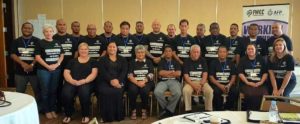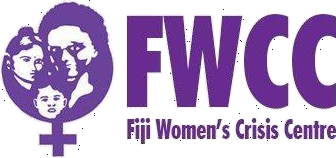Senior Executive Police Officers: This Training Must Not Stop With Us!
13 Feb, 2018
 [Guam 09 February 2018] Nineteen Police Commissioners, Directors of Public Safety and Chiefs of Police from the Micronesian region attending the Australian Federal Police and Fiji Women’s Crisis Centre (FWCC) training on Gender, Human Rights and Violence Against Women echoed in consensus during the last day of the training that the training must not stop with them.
[Guam 09 February 2018] Nineteen Police Commissioners, Directors of Public Safety and Chiefs of Police from the Micronesian region attending the Australian Federal Police and Fiji Women’s Crisis Centre (FWCC) training on Gender, Human Rights and Violence Against Women echoed in consensus during the last day of the training that the training must not stop with them.
At the start of the five-day training, the executive-level participants expressed some of their expectations of the training which included;
- gaining more knowledge from other countries on how they respond to violence against women cases and what are the best practices that have proven to work well in the pacific
- learning about human rights and gender equality and how it is linked to police work
- gaining more knowledge in the area of violence against women, gender based violence and domestic violence and understanding it from a victim’s perspective
- with the knowledge gained form the workshop looking at new and effective ways of responding to violence against women, where current practices are not working
- gaining more knowledge about statistics of violence against women across the pacific
- looking at how we can improve our policing skills (receive, response, investigate) and how to compile domestic violence cases and standards of procedures
For the majority of the participants, this was the first time they had undergone a specific training that exclusively looked at gender, human rights and violence against women. “Many of you have more than 30 years of policing experience and we acknowledge your service and commitment to policing in your respective countries, however we also must take up these unique opportunities to work with you because you are in influential positions to effect change in your system so that you can improve, where you need to improve, processes or attitudes that further victimises survivors of violence,” expressed lead trainer, Shamima Ali at the closing of the training.
The training is part of the Pacific Police Development Program (PPDP-R) under the AFP a partnered initiative with the FWCC. Ali reminded the executive-level participants that the FWCC agreed to the training partnership with AFP because for the last 25 years policing of violence against women has been, and still is, a common area of concern throughout the pacific. She said it is a popular theme regularly raised by members of the Pacific Women’s Network Against Violence Against Women (PWNAVAW), “I have heard the same thing over and over again at all our PWNVAW regional meetings and I thought it’s about time we try and impact change by heavily focusing on policing over a much longer period so we can start seeing some key generational-type changes start to take place because as you know, this type of training, changing attitudes and behaviours takes a long time and requires focused and saturated attention if we want to see any real change,” said Ali.
Attending the closing to present the certificates was Superintendent Kurt Plummer, Coordinator of the Pacific Development Program Regional. Speaking to the executives before the certificate presentation he placed great significance on the training delivered by FWCC, “I personally have done the program with my team back in Canberra and I hope you’ve got as much out of this program as I did. I thought I was a fairly knowledgeable and an advanced thinker on women’s issues, women peace and security, gender equality and so forth but during the training I learned so much more than I knew. I learnt about genderisation, a concept that is new to me. Learning about the differences in the socialisation of women and girls, men and boys was a real eye opener because it allowed me to have a wider perspective on gender issues and mores violence against women and domestic violence,” said Kurt
Kurt said that when he first joined the police force more than 30 years ago, the way they treated female police officers at that time is completely different to the way police women are being treated now in the AFP – and he contributed the latter to positive policies that prevent discrimination against police women in the police force. He said the partnership they have created with the FWCC over the last three years is critical for the work they are trying to roll out throughout the pacific, “This is the fourth executive level police training that we have partnered with FWCC to carry out. It’s a valuable program that pushes you to look at things using a different lens with the aim of changing attitudes and behaviours towards violence against women cases and we look forward to continuing this work with FWCC throughout the Pacific,” explained Kurt.
Nineteen of the executive level police officers graduated with a certificate on Friday presented by Superintendent Kurt Plummer which ended with a dinner at the Westin Hotel, Guam. This is the fourth senior executive level Gender, Human Rights and Violence against Women Training for police executives across the Pacific. To date approximately eighty executive level police officers have undergone the training. A similar training for front-line police from the Micronesian region is planned for July in Pohnepei later this year, “we look forward to working with each of the countries and states who have undergone the trainings to support their efforts on the ground to improve or bring about positive change in the way we address domestic violence and violence against women cases,” said Vanessa Stone, Advisor Australian Federal Police. [ENDS]
